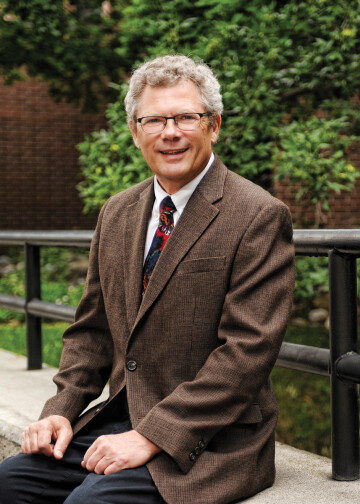Talking Shop with Bozeman’s Mayor
Pat Hill | Thursday Oct. 1st, 2015
The mayor that Bozemanites elect this November won’t actually begin to serve their term in that capacity until 2017.
Instead, the candidate voters send to the seat will serve the first two years of their four-year term as Deputy Mayor, a construct that began in Bozeman with the first direct election of the city’s mayor in 2007. Outgoing mayor Jeff Krauss said in a Sept. 18 interview that this can have a two-fold purpose, “If you’re elected mayor [of Bozeman] and you’ve never been on the city commission before, this helps to ensure that you’re not totally green--you’re not going to break stuff,” said Krauss of the training aspect of the deputy mayoral slot. “Because you can’t succeed yourself as mayor, it also prevents possible friction between the mayor and the city manager.” Krauss said that this protects that city manager form of government a little better, and prevents the appearance of a “strongman mayor” in the city manager form of government we have in Bozeman.
Krauss, a three-term mayor, is not abandoning Bozeman city government, but is instead running for the commission seat which is being vacated by Cyndy Andrus, who is taking a shot at the mayor’s seat this election. Current Deputy Mayor Carson Taylor begins his two-year stint as mayor when Krauss steps down. Andrus is being opposed by Brett Potter, who ran for the city commission in 2013. Besides Krauss, two other candidates are running for Andrus’ current commission slot: J.P. Polsak, and Melvin Howe. Bozeman’s other two commissioners, I-Ho Pomeroy and Chris Mehl, are each two years into their four-year terms.
Krauss said he thinks he brings a lot to the table as a commission candidate.
“I’ve held office 17 of the last 20 years,” said the self-described “elder statesman” of local government in Bozeman, “from city commission to county treasurer. I’ve been mayor three times. Being mayor is a harder, more time-consuming job than commissioner. I felt like taking a step back, not a step off. I hope the people of Bozeman will give me another chance. I’ve always felt I was the common-sense, practical candidate.” Krauss added that he brings “a little bit different point of view” to the table than other commissioners.
“I think an alternative point of view needs to be represented at the commission level. I think there’s some good things coming up that my experience will lend a hand in,” he said. “There’s a couple of projects coming up that I want to see done.”
One of those projects Krauss is interested in working on is the Unified Development Code (UDC) rewrite, and he said after working with both the county and the city, he knows areas where the two entities can work together. The Unified Development Code sets standards for things like parking, housing density, open space, landscaping, land use, and building design, and also pulls together the city’s transportation, parks and open space, and infrastructure plans. With Bozeman’s rapid growth in the 21st century so far, Krauss wants to “hopefully...completely change our approach from exclusionary zoning to more of a performance-based zoning approach.”
“Every citizen and person who does business in the City of Bozeman has a stake in the outcome of this process. The Unified Development Code rewrite process will challenge decades-old exclusionary zoning and planning codes that are often internally contradictory.” Krauss told KMMS-radio talk host Chris Griffin in September. “The current UDC often conflicts with the Community Plan, the Downtown Plan, and other more recently adopted community plans and goals for in-fill, density, affordable housing and mixed use development.”
“We are going to be working with the county more on land-use planning and water issues,” Krauss said. He stressed that the “huge issue” facing the commission over the next few years is simply “what do we want to be when we grow up?”
“What kind of city do we want to be?” said Krauss. “We’re growing. How do we...collectively...all of us...how do we make that happen? How do we afford it? How do we pay for it? How do we inspire it?” Krauss said that there are already a lot of disincentives to moving into Bozeman proper, such as high costs, and an emphasis on denser development within city limits. Krauss said he wants to examine ways Bozeman can provide better incentives for people who want to live in the city, thus avoiding increased sprawl out into the county.
“We’ve always been a place that’s been subject to the whims of land speculation,” Krauss added. “Our economy goes up and down depending on interest rates, capital, construction. I want to continue to work to diversify our economy, working with Montana State University, for instance, to bring employers here who have nothing to do with the building industry...or the retail industry, or the tourist industry.”
Construction, retail business, and tourism will remain a big part of the economy in the Gallatin Valley. MSU is helping to serve those employers and potential employees as well.
“Higher education is a big part of [the American] dream,” said Krauss. “I’m a big believer in the city’s partnership with MSU.” He said that Gallatin College, a two-year vocational school, came about as part of that partnership. Krauss said that the two- and four-year programs together offer graduates a wider array of choice, and he wants to see more apprenticeship programs in Bozeman to help some of those graduates stay in the Valley.
“I want Bozeman to be that welcoming, open community that I remember,” he said. “I feel like we lost a little bit of that along the way. I think I still have something to contribute, and I want to do that. It’s a privilege to be a Bozeman City Commissioner.”
| Tweet |
